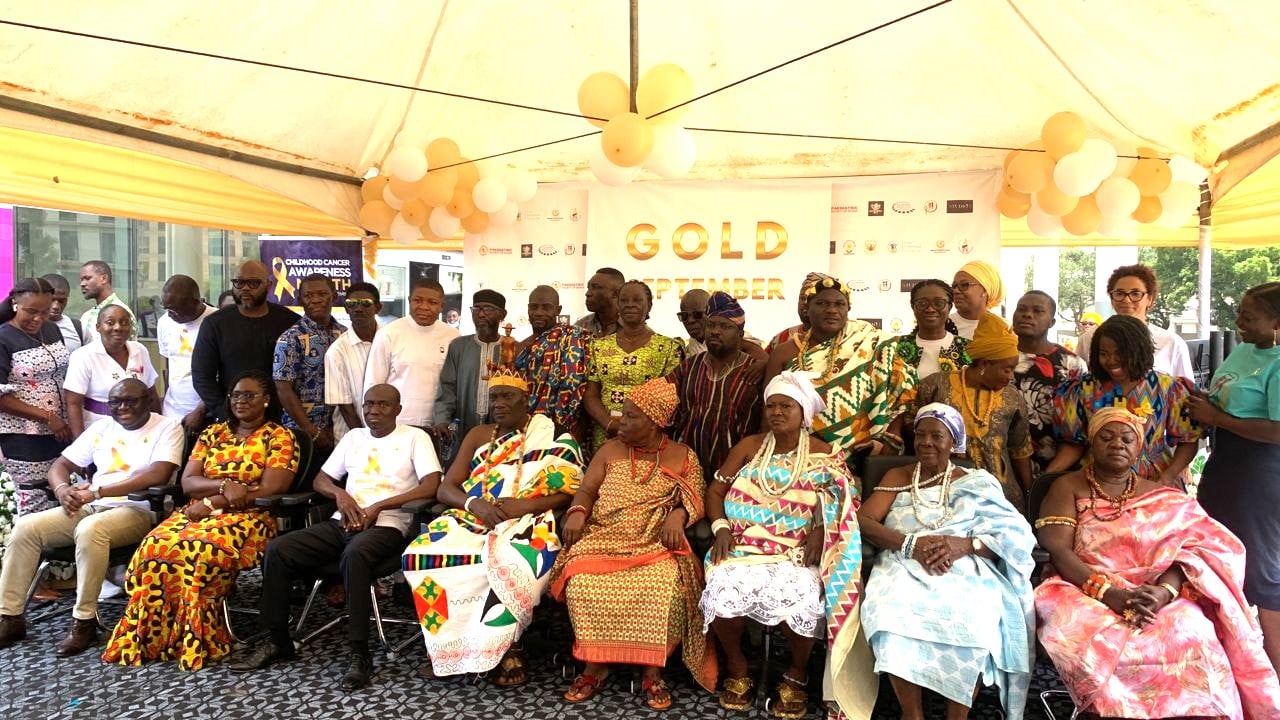
Summary of ICAG Public Financial Management lecture featuring Dr. Alex AMANKWAH-POKU, Chief Budget Analyst, Ministry of Finance.
Ghana’s mid-year budget review for 2025 tells a remarkable story of economic transformation that deserves both recognition and scrutiny. The country has achieved what many thought impossible just eighteen months ago: a dramatic turnaround from fiscal crisis to macroeconomic stability. Yet, beneath these impressive headline figures lie persistent challenges that demand urgent attention and a sustained commitment to reform.
The macroeconomic achievements are undeniably impressive and represent real progress affecting every Ghanaian household. Inflation has plummeted from 23.8% in December 2024 to 13.7% by June 2025, a dramatic 10.1 percentage point reduction achieved in just six months through the coordination of monetary and fiscal policies.
This represents the lowest inflation rate recorded since December 2021, with six consecutive months of decline averaging 1.7 percentage points monthly, exceeding all market expectations and providing tangible relief to families struggling with the cost of living. The Government’s ambitious target of achieving single-digit inflation by the fourth quarter of 2025 reflects confidence in continued policy effectiveness, while demonstrating a commitment to price stability as the foundation for sustainable economic development.
The debt sustainability transformation has been equally remarkable, with the debt-to-GDP ratio improving from 61.8% to 43.8%, an extraordinary 18 percentage point improvement representing one of the most significant fiscal adjustments achieved by any developing country in such a short timeframe.
This translates to a massive GH?113.7 billion debt reduction, transforming Ghana’s fiscal position from a state of crisis with a total debt of GH?726.7 billion to a more sustainable one of GH?613.0 billion. The improvement has restored market confidence, enhanced Ghana’s creditworthiness, and created substantial fiscal space for development-oriented spending whilst reducing the risk of future debt distress.
International reserves have strengthened significantly to $11.12 billion, providing crucial economic resilience with 4.8 months of import cover that exceeds international benchmarks, demonstrating sophisticated economic management that successfully balances exchange rate stability, import security, and debt service capacity.
This substantial reserve accumulation has contributed to the Ghanaian Cedi’s appreciation against major trading currencies and enhanced confidence among international investors in Ghana’s economic management capabilities, creating a strong foundation for continued stability and a sufficient buffer against external shocks.
The Government’s strategic allocation of GH?22.9 billion across critical sectors demonstrates a sophisticated understanding of development priorities and fiscal constraints, emphasising maximum developmental impact through coordinated investments.
The Infrastructure Big Push programme receives the largest single allocation of GH?13.8 billion, recognising that quality infrastructure drives economic growth, reduces transportation costs, enhances trade facilitation, and connects rural communities to national economic activities. This concentrated investment approach ensures projects achieve sufficient scale to generate meaningful economic benefits rather than dispersing resources across numerous smaller initiatives with limited developmental impact.
Energy security receives GH?9.1 billion, with a significant 2.2 billion revision, acknowledging that a reliable power supply serves as the fundamental enabler for economic growth, industrial development, and an improved quality of life.
This substantial investment focuses on maintaining a stable power supply through enhanced generation capacity, expansion to meet growing demand, improvements to transmission and distribution infrastructure, and strategic grid modernization, all of which support industrial development and rural electrification.
The expected impact includes enhanced industrial capacity, improved business environment through reduced power interruptions, decreased production costs for manufacturing enterprises, and enhanced regional competitiveness through improved energy infrastructure.
Human capital development receives enhanced allocations through multiple strategic focus areas, including nursing and teacher training allowances that address critical skill shortages in essential services, the enhancement of the District Assemblies Common Fund, which strengthens local Government capacity for service delivery, and comprehensive capacity-building programmes that improve technical and professional capabilities across the public sector. These investments recognize that sustainable development depends fundamentally on building citizen capabilities and ensuring quality service delivery across all levels of government.
Social protection receives multiple new expenditure lines, reflecting the Government’s commitment to inclusive development. This ensures that all citizens benefit from economic growth while providing security for vulnerable populations through enhanced social safety nets, comprehensive poverty reduction programs, and improved social cohesion through inclusive development approaches that strengthen national unity and stability.
However, this positive narrative must be balanced against significant challenges that threaten continued progress and expose persistent weaknesses in fiscal management systems. The GH?1.3 billion wage and salary overrun represents 2% of total Government payroll expenditure and highlights systematic weaknesses in public sector employment governance extending beyond simple budget miscalculation to fundamental challenges in expenditure management and control systems.
This overrun occurred despite enhanced budget planning and demonstrates the complexity of managing public sector employment within fiscal constraints whilst meeting service delivery requirements. The fiscal discipline threat includes weakened budget credibility through systematic expenditure overruns, undermined confidence in the Government’s ability to maintain fiscal targets, potential crowding out of development expenditure through unplanned wage commitments, and reduced fiscal space for addressing other priority areas, including infrastructure and social protection programmes.
The customs revenue shortfall of GH?1.6 billion represents approximately 1.4% of total revenue and highlights deep-seated problems in border management systems that require comprehensive modernization and reform.
This is not merely about lost revenue; it highlights broader governance challenges, including systemic leakages through inadequate scanning and inspection capabilities, widespread smuggling activities bypassing official channels and reducing taxable trade flows, insufficient coordination between customs and other border agencies leading to revenue leakage, and limited post-clearance audit capabilities failing to detect undervaluation and transfer pricing manipulation.
When customs revenue consistently falls short despite improved economic conditions, it suggests systemic issues requiring comprehensive modernization, including the full deployment of scanning technology at all major ports and border crossings, the complete implementation of automated risk assessment systems, and the enhancement of post-clearance audit capabilities to recover lost revenue and prevent future leakages.
Perhaps most troubling is the legacy arrears validation process, which covers GH?68.7 billion in historical claims and has reached 87% completion through the Ghana Audit Service, revealing significant expenditure management weaknesses that have accumulated over extended periods.
The comprehensive audit has validated GH?28.3 billion, representing 41% of total claims, as legitimate Government obligations, but rejected GH?3.6 billion, representing 5.2% of total submissions, due to various deficiencies, including inadequate documentation, non-compliance with procurement procedures, duplicate submissions, and claims exceeding authorised amounts. Additionally, GH?562.6 million remains contested, requiring further review, while GH?27.3 billion, representing 40% of the total claims, remains pending validation.
These findings expose systematic weaknesses, including inadequate supporting documentation and validation systems, weak procurement oversight throughout expenditure processes, non-compliance with procurement and public financial management regulations, and insufficient controls that allowed unauthorised commitments to accumulate over time.
The comprehensive revenue impact analysis reveals mixed results with significant implications for fiscal sustainability. The Energy Sector Levy Amendment has generated gross additional revenue of GH?2.9 billion through strategic implementation during improved economic stability conditions, demonstrating the potential for well-designed tax measures that maximize revenue while minimizing economic disruption.
The implementation method, involving a one-cedi-per-litre tax on petroleum products, utilised existing administrative infrastructure to minimise implementation costs while achieving administrative efficiency through comprehensive stakeholder consultation, which built support for policy change. However, this success is significantly offset by the customs revenue shortfall risk of GH?1.6 billion, resulting in a net positive impact of only GH?1.3 billion. This mixed performance demonstrates that, while innovative revenue measures can exceed expectations, systematic challenges in traditional revenue sources require immediate, comprehensive reform to achieve their full revenue potential.
These challenges underscore that Ghana’s fiscal journey remains incomplete and the country stands at a critical juncture where maintained reform momentum will determine whether current achievements become the foundation for sustainable prosperity or merely a temporary respite before renewed crisis.
The immediate priorities are clear, but they are also demanding and require comprehensive system reforms that address the root causes rather than just the symptoms. Payroll systems require comprehensive auditing across all Government institutions to eliminate ghost workers and ensure compliance with established compensation frameworks. This includes enhanced expenditure controls to prevent unauthorized hiring and allowance payments, as well as improved governance systems for managing public sector employment within fiscal constraints.
Customs operations require full technological modernisation, including automated scanning at all border points, enhanced technology integration for real-time monitoring, strengthened border control mechanisms and inter-agency coordination, and improved post-clearance audit capabilities to recover lost revenue and prevent future leakages.
ublic financial management systems require integration to eliminate coordination challenges and enhance overall fiscal management effectiveness through comprehensive budget planning and execution modules, real-time expenditure tracking and reporting capabilities, automated reconciliation procedures for inter-agency transactions, and enhanced audit trails that support accountability and transparency across all Government operations.
The establishment of the State Interest and Governance Authority (SIGA) to address GH?4 billion in financial irregularities identified by the Auditor General represents crucial institutional reform addressing three critical challenge areas in state-owned enterprise management. Over 50% of identified irregularities represent intergovernmental debts, creating artificial inflation of liabilities whilst obscuring true fiscal positions and complicating expenditure management processes.
The SIGA solution framework offers a comprehensive reform architecture that addresses governance, risk management, and performance enhancement through centralized oversight excellence, comprehensive risk prevention with systematic approaches to identifying and managing fiscal risks, and performance enhancement systems that focus on operational excellence and strategic alignment with national development priorities.
The success of the Energy Sector Levy Amendment provides valuable lessons for future policy design and demonstrates the importance of strategic timing, administrative efficiency, and stakeholder engagement in revenue policy implementation. Strategic timing during improved economic conditions minimized market disruption while maximizing revenue collection effectiveness.
The utilisation of existing tax infrastructure minimised implementation costs, while targeted product selection, focusing on items with relatively inelastic demand, and comprehensive stakeholder consultation built support and reduced implementation resistance. This approach of careful design, appropriate timing, and thorough consultation should guide future revenue enhancement initiatives whilst building on demonstrated capacity for policy innovation.
Ghana’s enhanced Public Investment Management Assessment (PIMA) implementation demonstrates forward-thinking policy approaches that integrate climate resilience considerations throughout infrastructure development, with varying progress in implementation across four critical phases.
Phase 1, focusing on strategic planning and allocation, achieved 100% implementation through comprehensive climate vulnerability assessment protocols, resilience planning integration in all major projects, and environmental sustainability criteria application. Phase 2, addressing project appraisal and selection, achieved 90% implementation through enhanced evaluation frameworks incorporating both traditional feasibility analysis and comprehensive climate risk assessment. This is not merely about environmental protection; it ensures that today’s investments remain productive and valuable in a changing climate, while building a foundation for sustainable development.
Ghana’s transformation story continues with this mid-year review, marking an important milestone rather than a final destination, and the country has proven it can implement difficult reforms whilst maintaining democratic governance and social stability. The challenge now involves sustaining reform momentum whilst addressing deeper structural challenges that require systematic intervention and institutional strengthening.
The potential for generating additional annual revenue of GH?5 to 8 billion through comprehensive reform implementation demonstrates the stakes involved and reflects the cumulative impact of addressing identified weaknesses whilst building on demonstrated successes.
Enhanced fiscal sustainability could generate GH?2 to 3 billion annually through improved customs administration, enhanced tax compliance and audit capabilities, optimised state-owned enterprise performance, and reduced fiscal leakages through better expenditure controls. Improved development impact could contribute between GH?1 billion and GH?2 billion annually through enhanced infrastructure productivity, improved human capital outcomes, more efficient service delivery, and enhanced economic competitiveness through strategic investments.
Ghana’s successful adherence to the International Monetary Fund’s programme conditions and demonstrated commitment to fiscal discipline have restored international confidence and creditworthiness, creating valuable assets that open up opportunities for enhanced development financing and private sector investment. However, maintaining this credibility requires consistent policy implementation and transparent governance whilst building on the foundation of restored market confidence and enhanced access to international capital markets. The successful management of international partnerships, while maintaining policy ownership and democratic accountability, demonstrates Ghana’s maturity as a development partner and provides a foundation for continued cooperation that supports national development priorities.
Perhaps most importantly, Ghana’s economic recovery has been achieved within a democratic framework with active civil society engagement and parliamentary oversight, demonstrating that effective economic management and democratic governance can coexist and mutually reinforce each other. This democratic dividend ensures that economic transformation contributes to, rather than undermines, institutional development and social cohesion, while building a foundation for sustained prosperity and enhanced welfare for all citizens.
Ghana’s mid-year budget review for 2025 offers grounds for cautious optimism, while highlighting the substantial work that remains to be done. The country has demonstrated a remarkable capacity for economic transformation and policy implementation, with achievements that deserve celebration, balanced against persistent challenges that demand urgent attention. The foundation for sustained prosperity is established through improved macroeconomic fundamentals, strategic sector investments, and enhanced institutional capacity; however, it requires a continued commitment to reform, institutional strengthening, and transparent governance.
For Ghana’s citizens, development partners, and regional neighbours, the message is clear: transformation is possible through sustained commitment, institutional strengthening, and honest acknowledgement of remaining challenges. Ghana’s journey from crisis to stability offers hope and practical lessons for sustainable development, while demonstrating that with appropriate policies, strong implementation capacity, and transparent governance, even the most challenging economic circumstances can be transformed into opportunities for sustainable development and enhanced prosperity. The comprehensive nature of reforms undertaken and remarkable results achieved demonstrate that effective governance, fiscal discipline, and strategic investment can create a foundation for lasting economic transformation and regional leadership in democratic development.
The post 2025 MID-YEAR BUDGET REVIEW: Implications for strategic resource mobilization and allocation appeared first on The Business & Financial Times.
Read Full Story














Facebook
Twitter
Pinterest
Instagram
Google+
YouTube
LinkedIn
RSS